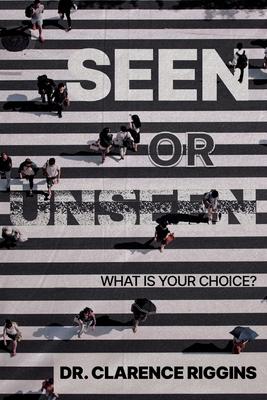The chapters in the book were meticulously chosen by the author. These are national occurrences combined with personal experiences. I had the impression that all adults at some point in their lives have witnessed something whether good or bad but decided not to intervene. Many of the readers probably have witnessed an unqualified person at work knowing the right things to say and were promoted far beyond their competency. You ask yourself if anyone besides you sees what is going on. Maybe from the book, a reader may gain some information on why he or she cannot seem to keep neighbors. A laundry list of possible behaviors may be of value to peoples other than the reader. From this laundry list, one may become enlightened and may see many of the listings are quite common to where they live. A highlight for the author is the mentioning of Black-on-Black crimes. There is a cry for help, even from the author's point of view. Our leaders are quite aware the problem is quite real, but there seems to be little to no emphasis on solving this issue. Racial discrimination are sensitive words. Many words mentioned in the book may have matured and are past their expiration date. As a Black man, I often believe these words are used too freely, and it seems to be a deterrent to the actual root cause. I did want all readers to know there was never a request for reparations. If there was ever a decision for reparations, what would be the criteria for Blacks with enslaved ancestors? The book also was written to stimulate those who knowingly have information to a solution to get involved and not to accept the encounter as "unseen." To all, our nation is changing-in color, in thoughts, and in protest. Do you see or not see the shift? What is your choice, and what will be your involvement?

The chapters in the book were meticulously chosen by the author. These are national occurrences combined with personal experiences. I had the impression that all adults at some point in their lives have witnessed something whether good or bad but decided not to intervene. Many of the readers probably have witnessed an unqualified person at work knowing the right things to say and were promoted far beyond their competency. You ask yourself if anyone besides you sees what is going on. Maybe from the book, a reader may gain some information on why he or she cannot seem to keep neighbors. A laundry list of possible behaviors may be of value to peoples other than the reader. From this laundry list, one may become enlightened and may see many of the listings are quite common to where they live. A highlight for the author is the mentioning of Black-on-Black crimes. There is a cry for help, even from the author's point of view. Our leaders are quite aware the problem is quite real, but there seems to be little to no emphasis on solving this issue. Racial discrimination are sensitive words. Many words mentioned in the book may have matured and are past their expiration date. As a Black man, I often believe these words are used too freely, and it seems to be a deterrent to the actual root cause. I did want all readers to know there was never a request for reparations. If there was ever a decision for reparations, what would be the criteria for Blacks with enslaved ancestors? The book also was written to stimulate those who knowingly have information to a solution to get involved and not to accept the encounter as "unseen." To all, our nation is changing-in color, in thoughts, and in protest. Do you see or not see the shift? What is your choice, and what will be your involvement?